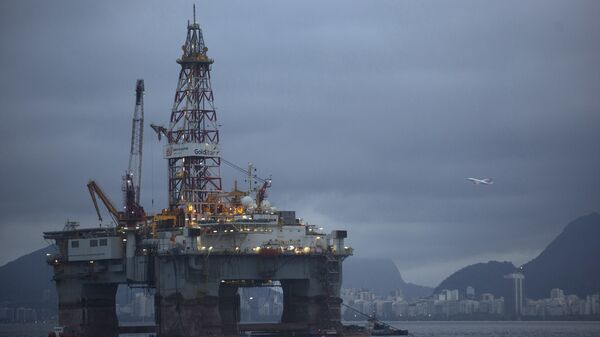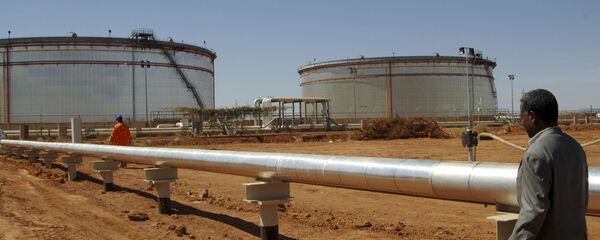Kristian Rouz — International oil prices are rallying amidst the increased demand for fuel and declining oil stockpiles in the world's largest economies. Meanwhile, oil supply has been constrained by the OPEC oil cuts and the aftereffects of disinvestment in the energy sectors across the globe.
Additionally, intensified turmoil in the Middle East has added upward pressure on crude prices. The ongoing hostilities in Syria, clashes in Yemen, as well as the persistent threat of radical Islamic terrorism, have all contributed to regional instability over the past few years.
READ MORE: Oil Exporters Ditching Dollar, Switching to Other Currencies
On Tuesday, Brent oil prices passed a psychological threshold of $75/bbl in London due to the expectations of a further supply squeeze.
Traders have also increased their long bets on oil amid concerns US President Donald Trump might pull out of the Iran nuclear deal in mid-May, resulting in an oil embargo against the Islamic Republic.
"Crude prices are now sitting at the highest levels in three years, reflecting ongoing concerns around geopolitical tensions in the Middle East, which is the source of nearly half of the world's oil supply," analysts from Australia and New Zealand Bank (ANZ) said.
Some traders say oil prices could advance as much as $5/bbl over the coming 30 days, as new sanctions against Iran could exacerbate supply concerns.
Meanwhile, the US energy sector is enjoying a massive influx of new investment amidst the expectations of higher returns. This is happening not least due to the decline in breakeven costs from $55-60/bbl in 2014 in the Permian Basin to the current $20/bbl as shale and horizontal drilling technologies have significantly improved.
"Investors are becoming more confident that US shale isn't going to be a runaway train," Trip Rodgers of BP Capital Fund Advisors said.
Higher oil prices have also encouraged intensified drilling activity in North America, which could potentially balance the market in the near-term. According to Baker Hughes data, US drillers added oil rigs for the third consecutive week, bringing the total count to 820 as of April 20.
READ MORE: US Investors Extend Oil Bets as Trump Criticizes OPEC
However, a gradual rise in US production might be lagging behind the tightening supply ahead of the summer driving season, and the rise in business and manufacturing activity across the advanced economies — which are currently performing much better than in 2016.
"A lot of investors are still scared from the oil collapses of 2014 and 2015," Max Gokhman of Pacific Life Fund Advisors said. "They are starting to get over their fear and look at the fundamentals again, and the fundamentals are very supportive."
Besides, according to the data from Energy Information Administration (EIA), US crude stockpiles dropped 150,000 bbl last week alone, as rising gasoline prices have supported more active processing activity as well.
Additionally, according to Goldman Sachs, a renewed windfall of petrodollars in the Middle Eastern oil kingdoms are being reinvested in the advanced economies as well, driving up construction, consumer demand, and overall business activity there.



